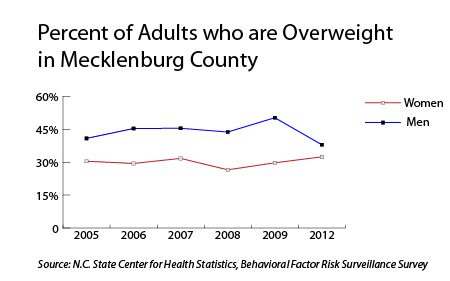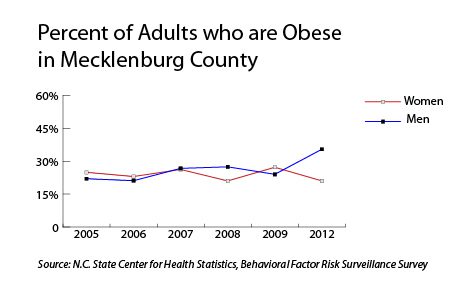Women’s Summit sponsors new online resource

You may already know that, as a group, women tend to earn less than men. Something that may surprise you is that in 2010, smaller percentages of women were overweight or obese compared to their male counterparts in Mecklenburg County.
| The Charlotte-Mecklenburg Women’s Summit is a center for women’s public policy and leadership development in the Charlotte region, providing research and analysis on issues that affect women and developing female leaders. Click here to learn more. The new Women’s Summit partner page features a host of articles, reports and data tools for analysis.This year’s Women’s Summit event features Dee Dee Myers at the UNC Charlotte campus April 13. |
This is just one example of the wealth of data that is now available on the new Charlotte-Mecklenburg Women’s Summit regional indicators partner page. For over a year now, the institute has worked in partnership with the Women’s Summit to track and analyze the social and economic well-being of women in Mecklenburg County.
The resulting online resource now allows users to compare men and women across a range of indicators in Mecklenburg County. You will find standard measures such as poverty, unemployment, and educational attainment broken down by gender, however you will also see unique measures that are not featured on the Regional Indicators or other Indicator Partners’ sites like earnings, political leadership and causes of mortality.


Obesity is one of the topics featured on this site that shows interesting patterns when the statistics are dissected by gender. Between 2005 and 2010, the percent of men who are overweight has been consistently greater than that of women, but that gap has recently narrowed. The trend in obesity rates, however, is more complex, with men and women trading positions over time (as to which gender has the highest percentage obese) and a notable divergence in 2010 with men’s obesity rate rising sharply and women’s falling off.
Earnings by gender is another topic that can be analyzed on the site. While men’s earnings are higher at all education levels, there is a strong convergence of earnings for men and women with high school or less education that is not evident for groups with higher levels of education.
In addition to the interactive data charts, you will find a series of reports compiled over the past year analyzing “women, wages and work,” with particular focus on how women have been affected by recession. Finally, if you are interested in discussing women’s issues or learning more about how to navigate this partner page, you might plan to attend the 2012 Women’s Summit on April 13. Find more information about the event on the partner page (click here).